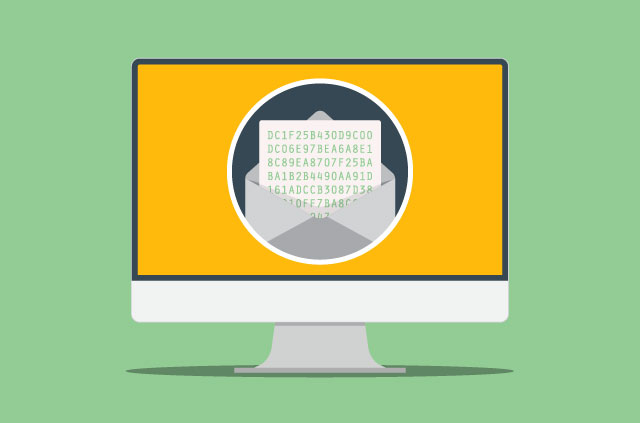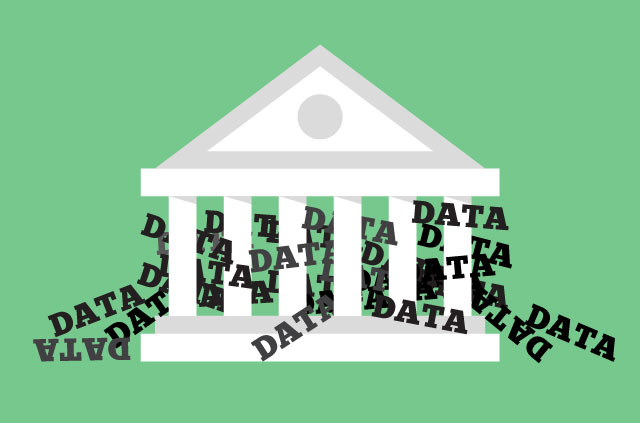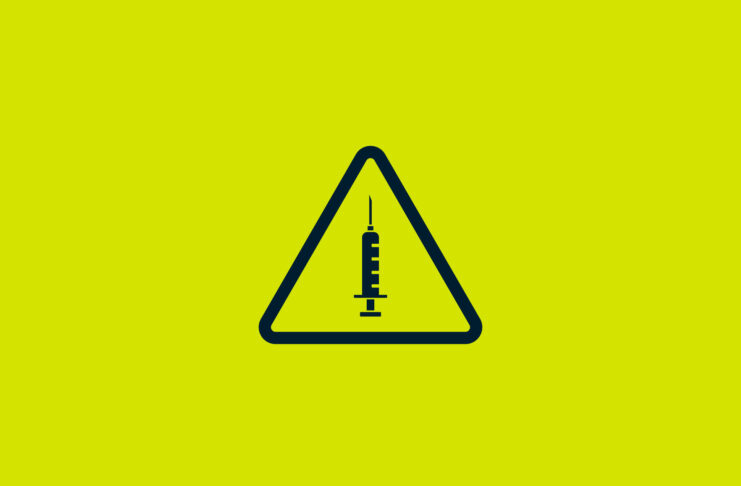Gmail may be the world’s most popular email service, but that doesn’t mean it’s the most secure. In fact, Google’s admitted to regularly reading users’ messages to better serve them ads. While the practice has since been said to have stopped, the fact that Google could read your supposedly secure messages in the first place is enough to cause concern.
Fortunately, there are other email options today besides the big three.
What does encryption mean, in terms of email?
When talking about encrypted emails, it’s important to remember that not every service is created equal: Some providers store emails in a way that cannot easily be accessed, while others offer self-destructing messages that will erase your tracks.
But by far most secure way to hide the contents of your email is to encrypt them with PGP, for pretty good privacy. Some email providers make this easier too, although there are security concerns about leaving your PGP key on a website.
Still, as we send messages from one recipient to another, metadata is always left behind, and if a recipient uses an unencrypted messaging service, it will eradicate any privacy protections you think you have.
It’s important to know how your email provider works and how it handles outside messaging services.
ExpressVPN’s picks for secure email providers
If you’re in the market for a more robust and secure email provider, check out ExpressVPN’s top picks. And, with each service sporting a free version, you can try them all before you decide which one works for you.
1. ProtonMail
Developed in 2013, ProtonMail has a long and reputable track record of providing users with a legitimate encrypted and anonymous messaging service.
Headquartered in Switzerland, ProtonMail is arguably the most trusted email provider today. Unlike U.S.-based email services like Gmail and Outlook, which are often forced to turn over sensitive documents, ProtonMail has no such obligations and is, therefore, the smarter choice for people who may be worried about sending potentially sensitive documents online.
As a secure messaging service, it’s second to none.
Features:
- 100% open-source
- Offers end-to-end encryption, two-factor authentication, and self-destructing messages
- Dedicated mobile apps for Android and iOS
- Allows file sizes up to 25 MB and free mail storage up to 500 MB
- Different pricing options, but the free version may be enough for most
Bottom line:
If you care about your privacy (and we assume you do—after all, you’re reading this article), then ProtonMail is the gold standard encrypted email platform. With the ability to create self-destructing messages, ProtonMail members can send encrypted messages to any recipient, regardless of which email service they use.
With an easy-to-use interface, robust encryption protocols, and dedicated mobile apps, it’s definitely the cream of the crop.
* Learn more about ProtonMail.
2. CounterMail
With more than 4,000 different types of PGP encryption keys, CounterMail’s a force to be reckoned with. The service itself is headquartered in Sweden, giving it a leg up in terms of privacy protections.
CounterMail also uses end-to-end encryption and is one of the only known email providers to offer its own secure USB key option, which makes it an excellent choice for people constantly sending secure messages on the go.
Features:
- Fully anonymous email service
- Headquartered in Sweden
- Uses OpenPGP with 4,096 different encryption keys to safeguard your messages
- Includes Linux, Mac, Android, and iOS support
- One-week free trial, with subscription plans starting at $6.33 a month
Bottom line:
A veritable powerhouse of encryption protocols, CounterMail is a great service with a strong focus on user privacy. The site itself may look like something straight out of Windows 95, but the service is top class.
While CounterMail offers a one-week free trial, subscription plans start at roughly $6 a month—making it the most expensive email option on this list.
* Learn more about CounterMail.
3. Mailfence
Launched in the wake of the Snowden revelations, Mailfence is another email service that offers encrypted messages with a strong focus on user privacy. By using OpenPGP, this service ensures that only the sender and recipient can read messages.
Unlike other encrypted email providers, it also comes with a host of other features, including digital signatures, built-in calendars, and more.
Features:
- Headquartered in Belgium
- Uses two-factor authentication and automatically detects and blocks spam
- Features highly customizable email settings
- Lets users import their information from Outlook and Gmail
- 10 MB attachment limit with 500 MB of free storage
Bottom line:
Mailfence is an incredibly potent and versatile email platform that donates 15% of its yearly revenue to the Electronic Frontier Foundation. That said, the free version generally offers more than enough storage and options for most users.
Unfortunately, Malifence doesn’t offer any dedicated mobile apps as of this article’s publication, which makes it significantly less practical than other services on the list. It also only lets users send encrypted messages to people who are also using Mailfence or OpenPGP, which makes it slightly less approachable for some users.
* Learn more about Mailfence.
4. Tutanota
Another great open-source email service, Tutanota uses end-to-end encryption to keep your correspondence secure.
Unlike other messaging services, it also automatically encrypts all in and outgoing messages regardless of which email service the recipient uses—a great feature if you’re writing someone outside your known network. However, the company is headquartered in Germany, which may or may not raise a few red flags.
Features:
- Completely open-source and uses end-to-end encryption on all messages
- Offers dedicated apps for iOS and Android
- Gives non-Tutanota users a secure link to read encrypted messages
- Allows up to 1 GB of free storage; unlimited storage costs 1 euro a month
Bottom line:
With more than two million active users, Tutanota is a popular service with a dedicated following. That said, the service doesn’t currently support PGP encryption, which automatically knocks it down a few pegs.
As a free secure messaging service with dedicated apps and the ability to send secure messages to recipients outside the Tutanota network, it’s a worthy contender.
* Learn more about Tutanota.
Don’t forget your VPN!
We hope this list helps narrow down your search. While each email option comes with its own pros and cons, you can always up the privacy ante by keeping your VPN on at all times.
If you use (or have used) any of the email providers listed above, leave a comment with your own opinions below.






























Comments
I’ve Tutanota for a couple of years now. Also, German privacy laws are pretty strong. Pretty much, storing your mail in any country other than the US is a worthwhile thing to do. Don’t forget cloud services either. Gdrive, Onedrive, Amazon Drive and NOT private.
You’s forgot the Encrypted Email Address provider CTemplar, They are based in Iceland and are also a great Email Service Provider. They can’t read your Email messages, Your subject on your Email Address is Encrypted, They offer Two Step Verification, They have great prices for their Email service and etc… .
🙂
Nice apps! Thanks
Just do not use FastMail! I have tried it up several months ago. I had problems with it that I have never had with any other mail system. Rubbish, absolutely rubbish. Nothing works on the server. They have poor customer support. It is really terrible considering its a paid mail. No number to call, the message system doesn’t work. Email them and you get no response. Not even automated. Another drawback is a lack chat. Plus I think its a scam. They took my personal info and banks info as well. Comparing to other free email’s, there is nothing I could see that made FastMail worth paying for. Waste of time and money.
I would recommend you Utopia email, i use it and quite satisfied.
Countermail was my first choice,but by using flash and not html5 ,you hve to use an old firefox browser to login
And their claim ” we use non disk servers” they dont excist,except of Commodore 64 and that is exactly what they use.
I’ve read that Proton Mail, while operating in Switzerland, was backed by a US investment firm. For that reason I decided to go with Tutanota.
Mailfence is not really an option and should not be included. The other three are fantastic. Personally I think Protonmail.com is the best.
I am a subscribed user of ExpressVPN and my question is:
…The suspense is killing us!
Bom